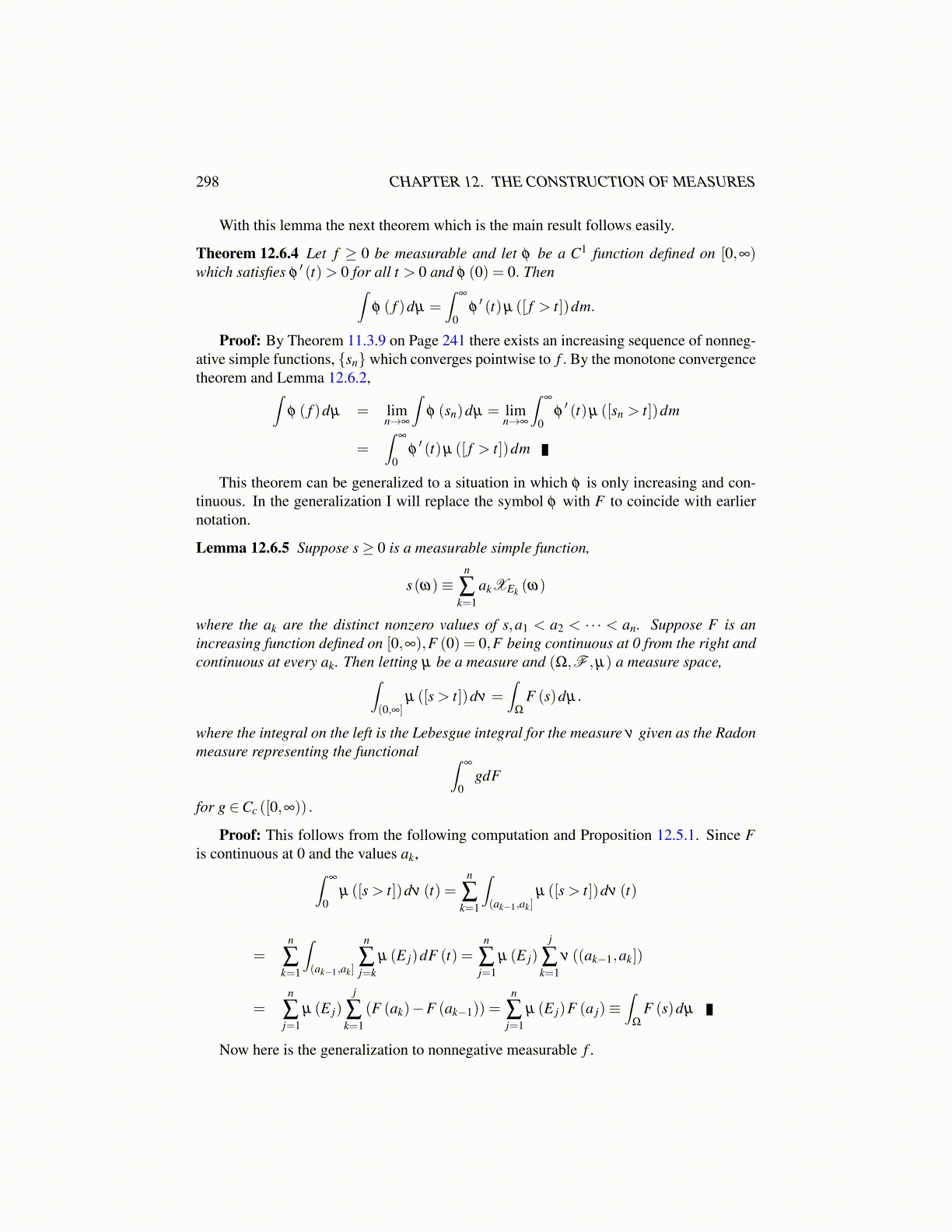
298 CHAPTER 12. THE CONSTRUCTION OF MEASURES
With this lemma the next theorem which is the main result follows easily.
Theorem 12.6.4 Let f ≥ 0 be measurable and let φ be a C1 function defined on [0,∞)which satisfies φ
′ (t)> 0 for all t > 0 and φ (0) = 0. Then∫φ ( f )dµ =
∫∞
0φ′ (t)µ ([ f > t])dm.
Proof: By Theorem 11.3.9 on Page 241 there exists an increasing sequence of nonneg-ative simple functions, {sn}which converges pointwise to f . By the monotone convergencetheorem and Lemma 12.6.2,∫
φ ( f )dµ = limn→∞
∫φ (sn)dµ = lim
n→∞
∫∞
0φ′ (t)µ ([sn > t])dm
=∫
∞
0φ′ (t)µ ([ f > t])dm
This theorem can be generalized to a situation in which φ is only increasing and con-tinuous. In the generalization I will replace the symbol φ with F to coincide with earliernotation.
Lemma 12.6.5 Suppose s≥ 0 is a measurable simple function,
s(ω)≡n
∑k=1
akXEk (ω)
where the ak are the distinct nonzero values of s,a1 < a2 < · · · < an. Suppose F is anincreasing function defined on [0,∞),F (0) = 0,F being continuous at 0 from the right andcontinuous at every ak. Then letting µ be a measure and (Ω,F ,µ) a measure space,∫
(0,∞]µ ([s > t])dν =
∫Ω
F (s)dµ.
where the integral on the left is the Lebesgue integral for the measure ν given as the Radonmeasure representing the functional ∫
∞
0gdF
for g ∈Cc ([0,∞)) .
Proof: This follows from the following computation and Proposition 12.5.1. Since Fis continuous at 0 and the values ak,∫
∞
0µ ([s > t])dν (t) =
n
∑k=1
∫(ak−1,ak]
µ ([s > t])dν (t)
=n
∑k=1
∫(ak−1,ak]
n
∑j=k
µ (E j)dF (t) =n
∑j=1
µ (E j)j
∑k=1
ν ((ak−1,ak])
=n
∑j=1
µ (E j)j
∑k=1
(F (ak)−F (ak−1)) =n
∑j=1
µ (E j)F (a j)≡∫
Ω
F (s)dµ
Now here is the generalization to nonnegative measurable f .